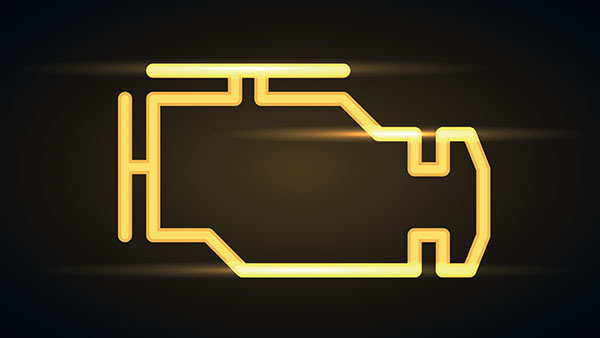
You're driving from work, just like usual, when suddenly, your check engine light illuminates on the dashboard. It's a familiar scenario for many drivers, but what exactly does it mean? Is it something to worry about immediately, or just a slight reminder?
The Check Engine Light
The check engine light, also known as the malfunction indicator lamp (MIL), serves as a warning sign that there's an issue with your vehicle's engine or emissions system. When the light comes on, it's essentially your car's way of saying, "Something's not right."
Common Problem - Faulty Oxygen Sensor
One of the most frequent culprits behind a lit check engine light is a faulty oxygen sensor. Oxygen sensors monitor the amount of oxygen in the exhaust gasses and provide feedback to the engine control unit (ECU) to adjust the air-fuel mixture for optimal performance. When an oxygen sensor fails or malfunctions, it can trigger the check engine light and lead to issues such as reduced fuel economy and increased emissions.
Preventive Maintenance
While it's impossible to guarantee that your check engine light will never come on, there are several preventive maintenance measures you can take to minimize the risk of encountering this problem. Regularly scheduled maintenance, including oil changes, air filter replacements, and spark plug inspections, can help keep your engine running smoothly and reduce the likelihood of sensor failures.
Avoiding Common Triggers
In addition to proactive maintenance, avoiding common triggers for sensor failures can also help prevent your check engine light from illuminating unexpectedly. These include using the wrong type of fuel, ignoring warning signs such as rough idling or stalling, and neglecting to address minor issues before they escalate into major problems.
Diagnostic Tools and Professional Assistance
If your check engine light does come on, don't panic. Instead, invest in a quality diagnostic tool or visit your local auto parts store to have the codes read for free. These codes can provide valuable insight into the specific problem causing the light to illuminate. In some cases, the issue may be minor and easily rectified, while in others, professional assistance may be required.
Answering Questions You Might Have
Why does my check engine light come on intermittently?
Intermittent check engine light illumination can be caused by various factors, including loose gas caps, sensor glitches, or minor issues that resolve on their own. It's essential to address any recurring issues to prevent potential damage to your vehicle.
Can I ignore the check engine light if my car seems to be running fine?
While your car may appear to run fine despite the check engine light being illuminated, it's essential to address the underlying issue promptly. Ignoring the check engine light can lead to decreased fuel efficiency, increased emissions, and potential damage to engine components over time.
What should I do if my check engine light flashes?
A flashing check engine light indicates a severe problem that requires immediate attention. If your check engine light is flashing, pull over safely, and have your vehicle inspected by a qualified mechanic as soon as possible to prevent further damage.
See the check engine light on your dashboard? Don't worry! Visit Just Automotive, and we will take care of it!